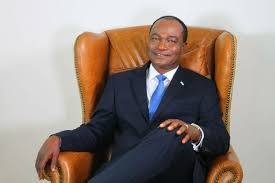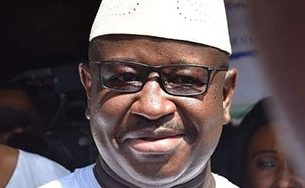Freedom of Information Act – Hurdles to overcome
In the past few weeks I have read a few articles referring to the Freedom Of Information Act, now in the hands of Parliament, (at last check), to be ratified. With news of such an important bill going through the Sierra Leone Parliament, my first instinct is to ask how much input has the general populace had towards such a bill. In very democratic situations the idea is floated, then serious discussions are held with members of the public. These discussions can involve, starting from the most basic community organizations, on to county, (chiefdom, or equivalent), state (district or equivalent.) and federal (national) levels. My question then is whether the latest iteration of the bill was first sent out to all these groups and the groups asked for input? A draft of this Act has been floating around for about ten years or so and we finally have a version sent to parliament. When was the last public discussion of this present draft held? I do believe that any discussions going back more than 6 months should not be considered as been recent enough. The other question is: Who were the people that constituted the discussion group and from what levels of society were they taken? Enough said about how the act got to this stage. (Photo: Sewanu-Kponou, author)
The FOI Act is going to be predicated on the fact that there is information to be accessed. This is, in principle, what such an act is about, but it is brought up here because the fact that there should be information, in print, does not necessarily mean that there actually is. It is usually advantageous to a corrupt official to leave as little a paper trail as possible for actions taken in the workplace. There is also the accuracy of the information needed. It is an unpleasant surprise to find out that the information needed has been forged, by people sitting in offices in Freetown, about events/statistics happening in the country, Freetown included. There is hardly a culture of information gathering in the country. People who have tried to find information on issues that are not politically charged can attest to that. It stands to reason therefore that getting access to politically charged information will be even more difficult, if at all available. There is a culture in Sierra Leone of seeking external rewards (bribery) for doing work that is in one’s job description (Terms of Reference, in Salone preferred speak). On any given day, if someone should go into any government office in Sierra Leone and try to access information, you are immediately considered a source of breakfast, lunch, dinner or transportation. (This is regardless of the fact that these people may not have done anything in a month other than come in 10:00 am, go to lunch at midday and come back at 4:30p.m. to pick up their bags and leave for home.) To be included in the list of obstacles is the fact that many an office worker does not have any clue as to what may be investigated and can hardly point you in the right direction. Citizens/investigators can spend a good hour or two going from one officer to the other, trying to find out who is the custodian of the information being requested. When you are finally able to meet with the custodians they immediately become very busy and let you know that you are not priority anyway.
Nollo Prosequi
Considering the difficulties outlined, thus far, the last and final recourse seems to be to sue the government for stopping the flow of information. Evidence abounds that the possibly of winning in court against the government is slim, to none, in Africa. Enter “Nollo Prosequi”. The African interpretation seems to be the one that gets the government out of a case that cannot be won in an independent court. Thus far it seems as if this section of the law is one of the most abused, by almost all administrations. It is a face saving mechanism for the intransigence of sitting administrations. It seems like it is used at will. One wonders then what steps a citizen, or group, will need to take to get to that piece of information, if available, but has been hidden or, worse still, destroyed? It will seem like all that is needed is a strong judiciary.
The blind goddess of justice
There is the reality of how a judiciary is created in some situations. First step, win the Presidential elections and get a parliamentary majority. For those not acquainted with the system in SL, parliamentary and Presidential elections go hand in hand once every five years. The reality is that there is no separation between Presidential candidate and parliamentary candidates. Voting is usually a 100% party affair and so the party with the highest number of parliamentary seats will win the Presidential contest as well. The next step is to reorganize the judiciary as best as possible and allocate positions to the benefit of the incumbent administration. Final step is to get the Justice Minister and the Chief Justice, all of whom are party members, in place. The picture is now painted of a non-independent justice system, which in turn paints a picture of the difficulty of implementing an FOI Act, for the benefit of the people, and ultimately the country.
Time will tell
In the event of the stated problems not been properly addressed, then the Act may not be worth the paper on which it is being written. It will fall in line with many other Acts and ordinances floating around that have never been referred to since the day of enactment. Until we, as a nation are ready, laws been urged upon us by our donor parents will be meaningless. The sad thing is that even the donors know that just creating a new law/ordinance does not imply impartial, if any, implementation. Even more troubling is that these practices transcend administrations, creating, in essence, a tradition. Considering how powerful a piece of legislation this could be, only time will tell what the final piece will look like, and whether there will be the political will for it to be implemented.
Sewanu Kponou – Atlanta, GA.
Stay with Sierra Express Media, for your trusted place in news!
© 2010, https:. All rights reserved.






